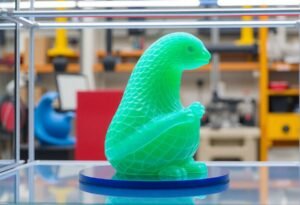The Internet of Things (IoT) is reshaping retail experiences and driving innovation in ways previously thought impossible. With interconnected devices, retailers can enhance customer interactions, streamline operations, and create a personalized shopping experience.
Transforming Customer Engagement through IoT
By leveraging IoT technology, retailers can significantly improve customer engagement. Using data collected from smart devices, retailers can understand consumer behavior better and tailor their marketing strategies accordingly. For instance, smart mirrors in stores allow customers to visualize products in real-time, while mobile apps can send personalized offers based on shopping habits. This innovation leads to a more connected and satisfying shopping experience, encouraging customer loyalty.
Optimizing Inventory Management with IoT
Inventory management is crucial in retail, and IoT plays a vital role in optimizing it. With real-time data from connected sensors, retailers can track stock levels more efficiently, reducing the occurrences of overstocking or stockouts. This system uses RFID tags that provide information on product location and quantity, helping to streamline supply chain operations. Retailers enhance their efficiency and reduce costs by ensuring that the right products are available at the right time.
Enhancing In-Store Experience with Smart Technologies
In-store experiences have significantly benefited from smart technologies connected through IoT. Retailers are now employing interactive displays and augmented reality (AR) applications to engage customers actively. For example, AR can create immersive product demonstrations, allowing consumers to see how items will fit into their lives. Such innovations attract customers and create memorable shopping experiences that differentiate retailers from competitors.
Personalizing Marketing Strategies Using IoT Data
The data generated from IoT devices allows retailers to craft highly personalized marketing strategies. By analyzing customer preferences and behaviors collected via smart devices, retailers can create tailored advertisements and promotions. This level of customization fosters a deeper sense of connection between the consumer and the brand, ultimately driving higher conversion rates and sales. Retailers that successfully implement these strategies can see significant improvements in customer satisfaction.
Gaining Actionable Insights from Customer Data
One of the most significant advantages of IoT in retail is the ability to gain actionable insights from customer data. Retailers can analyze and interpret data collected from IoT devices, leading to better decision-making. Understanding trends, preferences, and behavior patterns empowers retailers to refine their product offerings and optimize their marketing approaches. Data-driven decisions position retailers strategically for future growth in an ever-evolving market.
Improving Operational Efficiency through IoT Integration
Finally, IoT integration not only enhances customer experiences but also improves operational efficiency. Retailers can automate various processes, from restocking inventory to customer service tasks, all enabled by interconnected devices. Systems that communicate with each other can reduce manual tasks and errors, allowing employees to focus on delivering exceptional customer service. By streamlining operations with IoT, retailers position themselves to thrive in a competitive landscape.
Disclaimer: The information presented in this article is for informational purposes only and does not constitute professional advice.





















